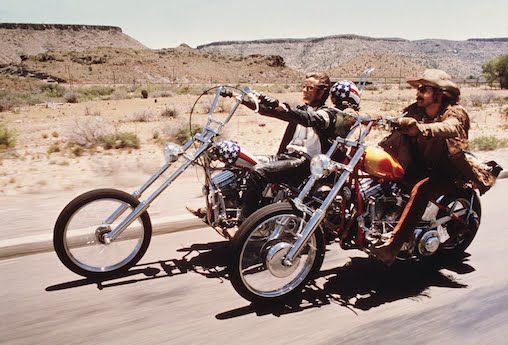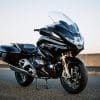(Wheels and Reels: Sponsored post)
There are movies and TV shows, not to mention books and comic books, that define their heroes, villains, perhaps antiheroes by the wheels they use to move around. These wheels, two or four, depending on the necessities of the plot, are sometimes placed inside the story by the courtesy of the show’s sponsors, in a practice called “product placement”. This is why various brands are depicted as the most reliable cars in the world. When it comes to motorcycles, though, product placement is pretty rare. This doesn’t mean motorcycle brands are not present in popular culture – but their brands are there not as a means of raising some funding but due to their meaning, mythos, and image.
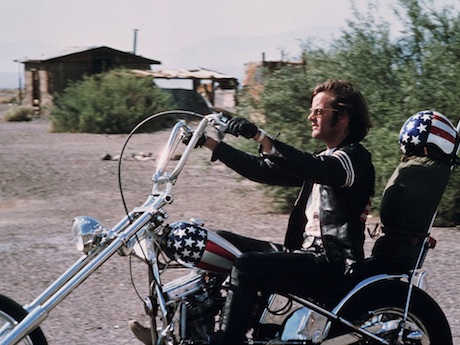
Harley-Davidson is the brand that shows up most often in movies and TV shows, especially since the success of the legendary “Easy Rider” with the late Peter Fonda in the main role. There’s no telling how much of its popularity is due to its legendary status or clever marketing, but the fact remains: it’s arguably the best-known motorcycle brand in the world, with frequent cameos in various movies, TV shows, books, even comic books. Unfortunately, nobody ever made a list of all the movies that feature Harleys but here are some of the most famous ones: Meat Loaf rides a WLA in the cult classic “The Rocky Horror Picture Show”, Sylvester Stallone rode an FLH 80 in “Rocky III” and “Rocky V”, James Marshall rode a 1978 FLH-80 in the iconic TV series “Twin Peaks” (and the follow-up film “Fire Walk With Me”), and to have a more recent example, too, Chris Evans rode a Softail Cross Bones (made to look like a WLA) in “Captain America: The First Avenger).
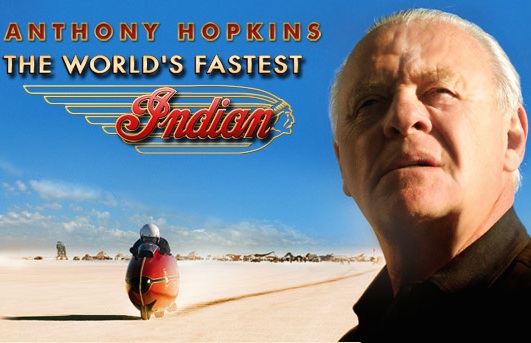
Back in the early 1900s, Indian was the largest motorcycle manufacturer in the world. It had quite a few popular models, like the Chief (between the 1920s and the 1950s) and the Scout (manufactured until 1946) but this didn’t stop the manufacturer from going bankrupt in 1953. Since then, several companies tried to revive the Indian brand, with various (usually limited) success.
Indian motorcycles show up in quite a few movies, quite often those taking place in the inter-war period. A 1934 Indian Sport Scout is featured in the 2001 war drama “Pearl Harbor”, Mark Wahlberg rides a customized Indian Scout in Ted 2, Jason Lee rides a blue 1933 Indian Chief owned by enthusiast Dennis Brilla of Plantsville in his movie “Good Ol’ Boy”, and Jean-Claude van Damme rides a beautiful 1950 Indian Chief in the 1999 action flick “Inferno” (also known as “Desert Heat”). One of the “revived” Indian bikes also tried to break into show business: in the forgettable “Terminator 3: Rise of the Machines”, Arnold Schwarzenegger rides a 2002 Indian “Police” Chief (the bike was later sold at an auction for under $10,000).
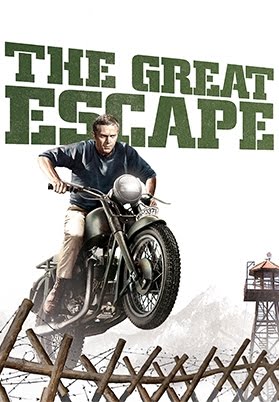


Finally, let’s take a look at the biggest and perhaps best-known British motorcycle brand in history, Triumph, that had its share of Hollywood spotlight. Triumph Engineering, the company behind the brand, was founded in 1885 and started producing bicycles in 1889, and motorcycles in 1902. The original company went bankrupt in 1983 and the brand ended up with its successor Triumph Motorcycles Ltd, becoming the largest UK-based motorcycle manufacturer.
Triumph bikes have shown up in the movies for ages – one of the first to do so is a Triumph Thunderbird 6T that Marlon Brando rode in the 1953 movie “The Wild One” (it was his own bike). One of the most famous performances by a Triumph bike was Steve McQueen’s iconic escape in “The Great Escape” – he rode a modified Triumph TR6 Trophy in the movie, modified to resemble a German BMW. Clint Eastwood rode a Triumph Bonneville in “Coogan’s Bluff”, Pamela Anderson rides a Triumph Thunderbird in 1996’s infamous “Barb Wire”, Norman Reedus rides a chopped Triumph Bonneville from the 1960s in the popular post-apocalyptic TV series “The Walking Dead”, and Chris Pratt’s character rides a Triumph Scrambler in 2015’s “Jurassic World”.


